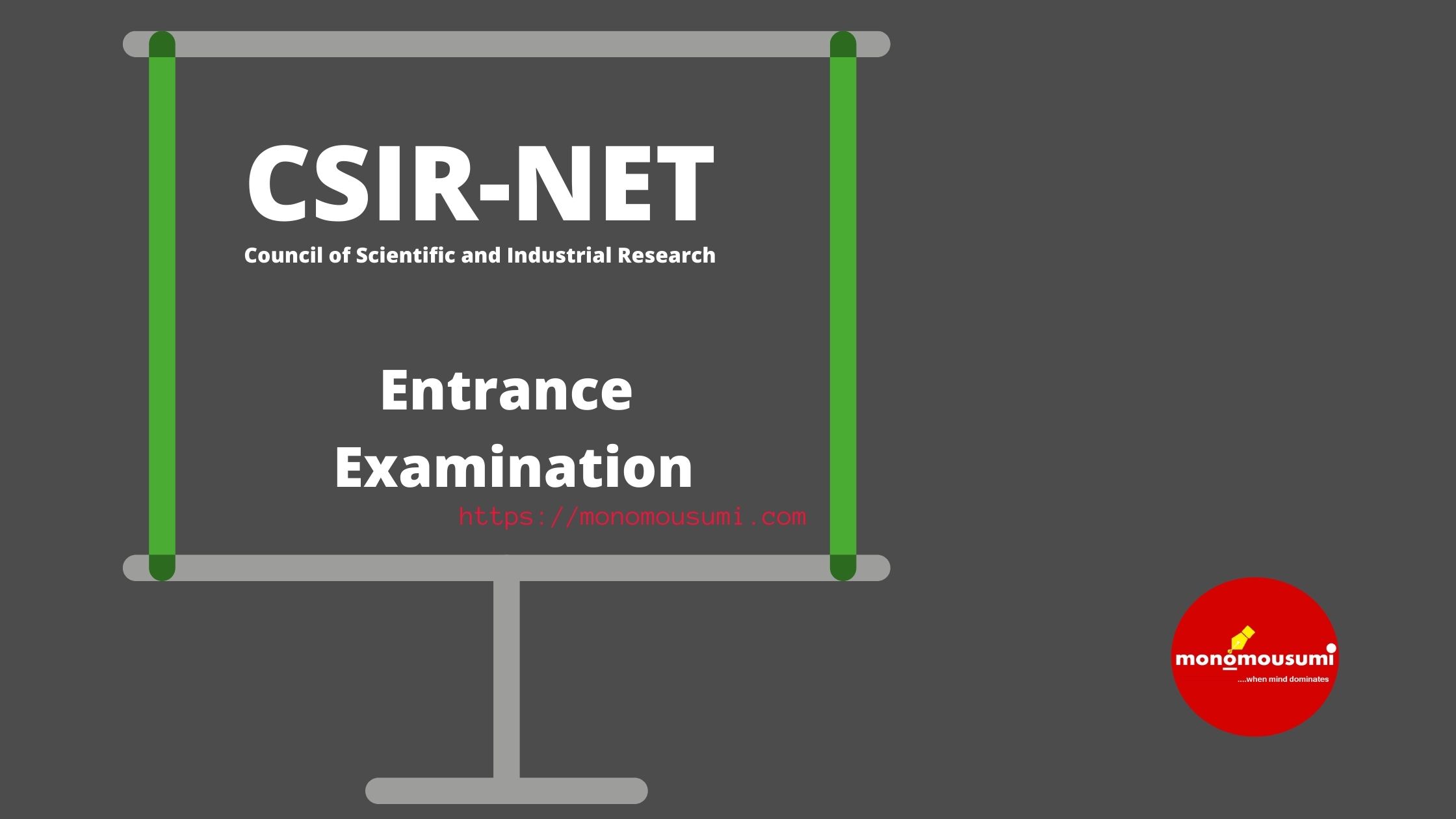
CSIR- NET considered to be one of India most prestigious competitive exam, without which one’s dream to achieve doctorate is shattered. CSIR exam is considered as the holy grail for any doctoral candidate preparing to do their research in India. CSIR-NET tops the list among all the fellowship exams due its high level thinking questions and pay scale. The only path to achieve this great feat is sheer determination and optimism. The end result of this terraneous journey will pay fruitful results depending on one’s commitment. CSIR fellowship exams are conducted biannually during second week of July and December. It is conducted for 5 subjects which includes Earth Science, Life Science, Mathematical Science, Chemical Science and Physical Science. Clearing CSIR exam will enable to procure a JRF fellowship and occupying rank within a certain range allows for LS (Lectureship position). The stipend offered by CSIR is valid for 5 years from the date of start of fellowship and is awarded an amount of Rs31,000/- for junior research fellow and Rs 35,000/- for senior research fellow.
The syllabus for this exam is vast and requires a clear idea on all basic concepts. Comprehensive reading is required for all the topics. Syllabus for life Science comprises of Applied Biology, Biochemistry, Molecular Biology, Cell biology, Immunology, Developmental Biology, Inheritance biology, Ecology, Diversity in Life forms, Human physiology, Plant physiology, Evolution and Behavior and Techniques in biology. Time allotted for the completion of exam is 3hr and mode of exam is online. The exam consists of a total of 145 MCQ question divided among 3 sections. Section A consists of aptitude questions based on numerical abilities, logical reasoning, number series and general knowledge on science. Section B consists subject based questions which mostly focusses on memory based knowledge and Section C is the high level thinking analytical questions which requires deep understanding on the subject and ability to make connections among all the topics.
Section A is allotted total of 20 questions of 2 marks each among which maximum 15 questions has to be attempted and for every wrong answer, 0.5 marks are deduced. Section B consists a maximum of 50 questions allotted 2 marks each among which only 35 questions need to be attempted and for wrong answer negative 0.5 is deduced. Section C is the highest scoring section with a total of 75 questions (4) marks each among which maximum 25 questions need to be attempted and negative 1 mark for each wrong answer. This summates the entire CSIR life Science exam to a total score of 200.
Since every person is unique each student has their own unique method for preparation of this exam, some prefer self-study and others online coaching. The method and time invested in preparation does not matter as long as the set goal is achieved. Quality preparation requires standard reference books and daily practice of question papers. The standard reference books for each unit are as follow-:
Applied biology– helps to understand the application of biology like vaccines, it involves diverse topics hence updated knowledge on scientific discoveries through thorough reading of scientific articles.
Biochemistry– Focusses on Major macromolecules, enzymatic catalysis and bioenergetics; Lehninger: Principles of Biochemistry
Molecular Biology– Detailed study on the fundamental process of cell; Molecular cell biology by Harvey lodish and Cell and Molecular biology: Concepts and experiments by Gerald and Karp
Cell Biology– It includes detailed study of different organelles and their function and cell communication and signaling; preferred book is Molecular biology of cell by Bruce Alberts.
Immunology & Microbiology – Study of immune response and pathogenic interactions; Kuby Immunology and Prescott Microbiology.
Developmental Biology– Focus on stages on developmental process and genes involved in different organisms; Developmental biology by Gilbert.
Inheritance Biology/ Genetics– It involves Mendelian genetics, population genetics, Chromosomal aberration, linkage, pedigree analysis and sex determination; iGenetics by peter Russel & Principles of Genetics by Snustad and Simmons.
Plant Physiology and Human Physiology– Comprehensive study on hormones in plants and their role in plant growth and Human physiology involves study of different system and their functions; Plant Physiology by Taiz and Zeiger, Human physiology by Guyton.
Diversity in life forms– focusses on taxonomical classification of all living organisms; Taxonomy by Blackwelder.
Ecology– It involves study of ecological principles and environmental concerns; Fundamental of Ecology by Eugene.
Evolution and behavior– Study of selection theories, types of evolution and changes associated with it; Evolution by Strickberger.
Techniques in Biology– focusses on different techniques like Recombinant DNA technology, immunological techniques, in vitro mutagenesis, biophysical techniques, radiolabeling techniques, microscopic techniques and biostatistics; Principles of Gene manipulation by Primrose and Principles and Techniques by Wilson and Walker.
Topics can be prepared preferentially depending on time limits, but certain high scoring units like Biochemistry, Molecular Biology, Cell Biology, Immunology, Genetics and Physiology (plant or Human) should not be skipped. Maximizing study coverage can increase the chances of attempting maximum questions.
The key for success is not limited to comprehensive preparations but also a clear mind. A frantic last minute study will not help in clearing competitive exams. Well planned study for a minimum of 6 months is required to successfully crack CSIR- NET exam.
By Malavika Menon, Palakkad


